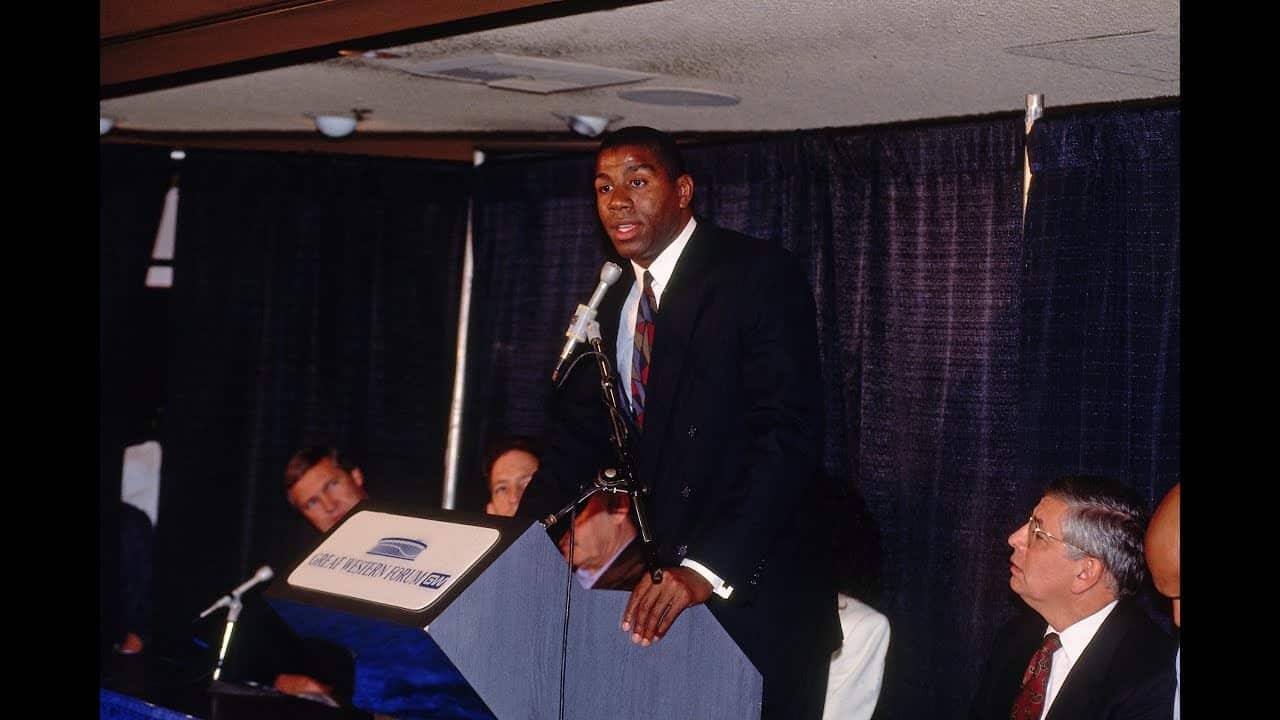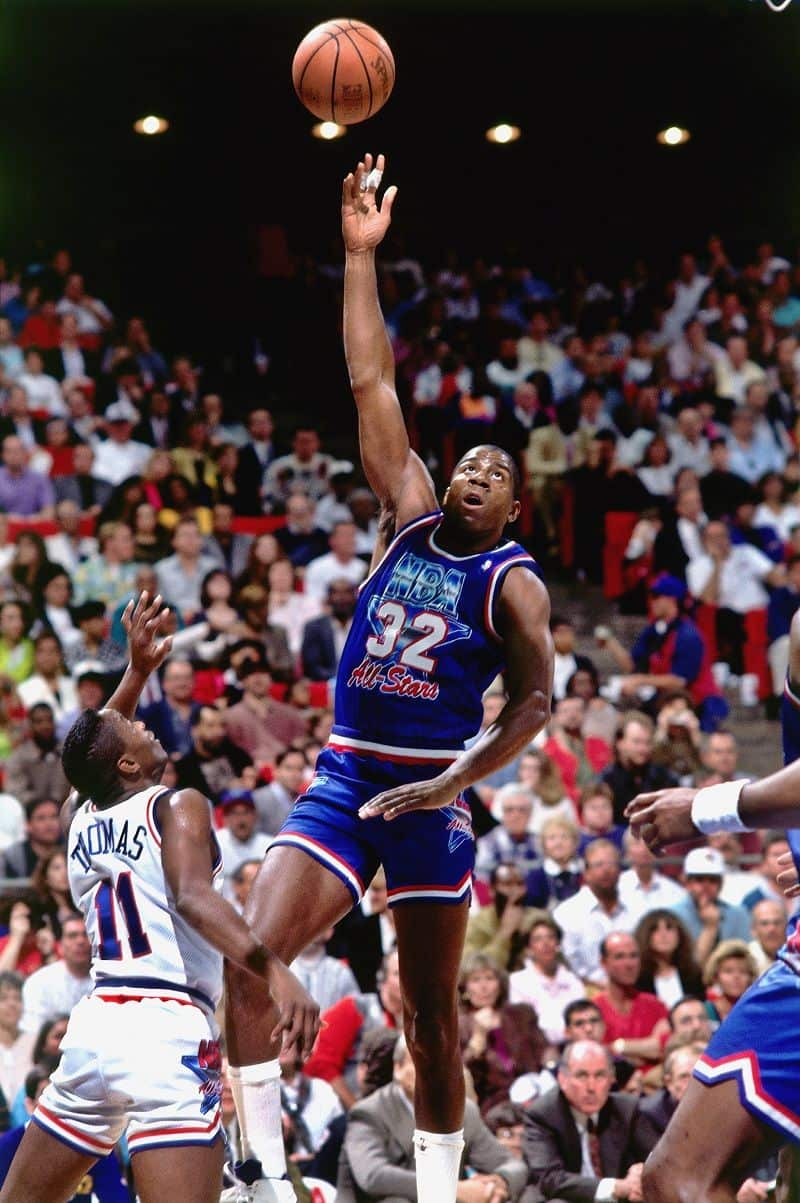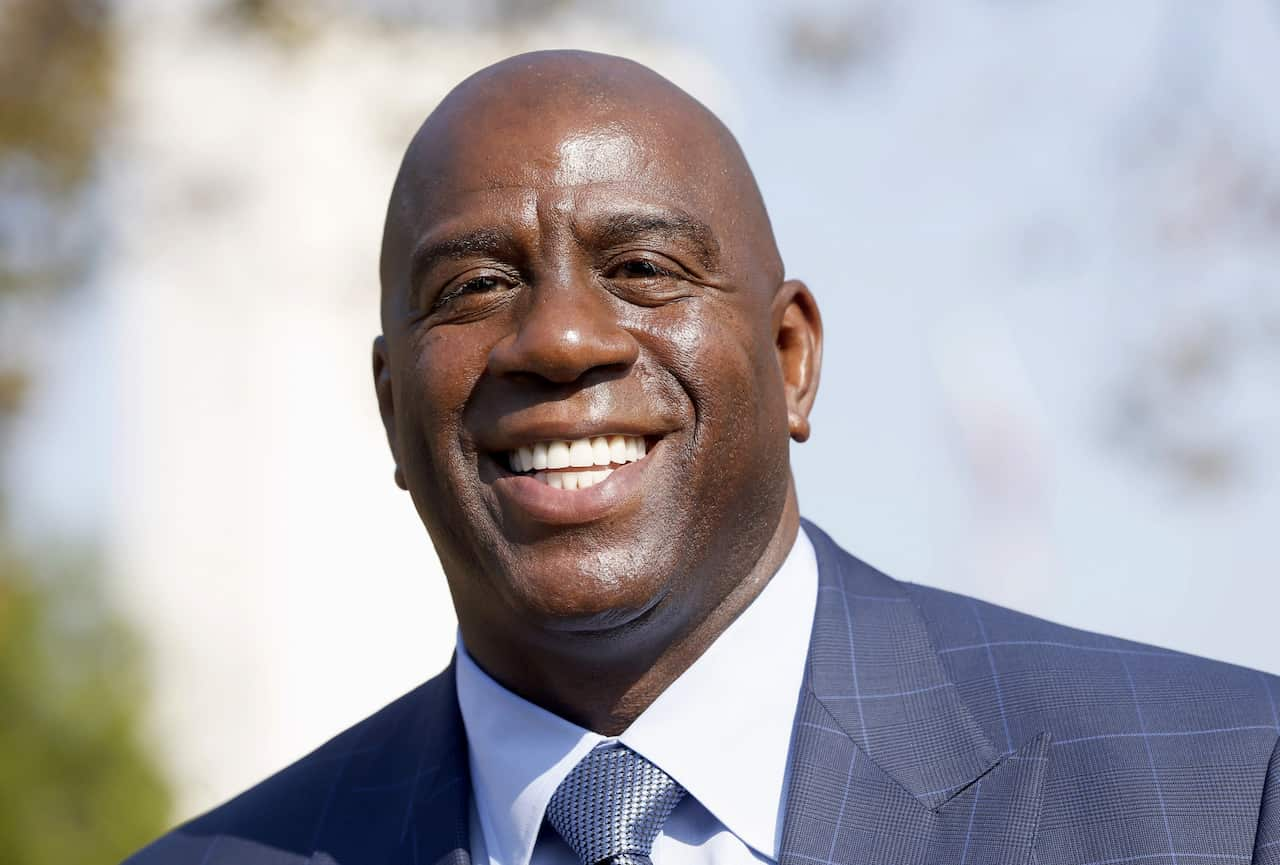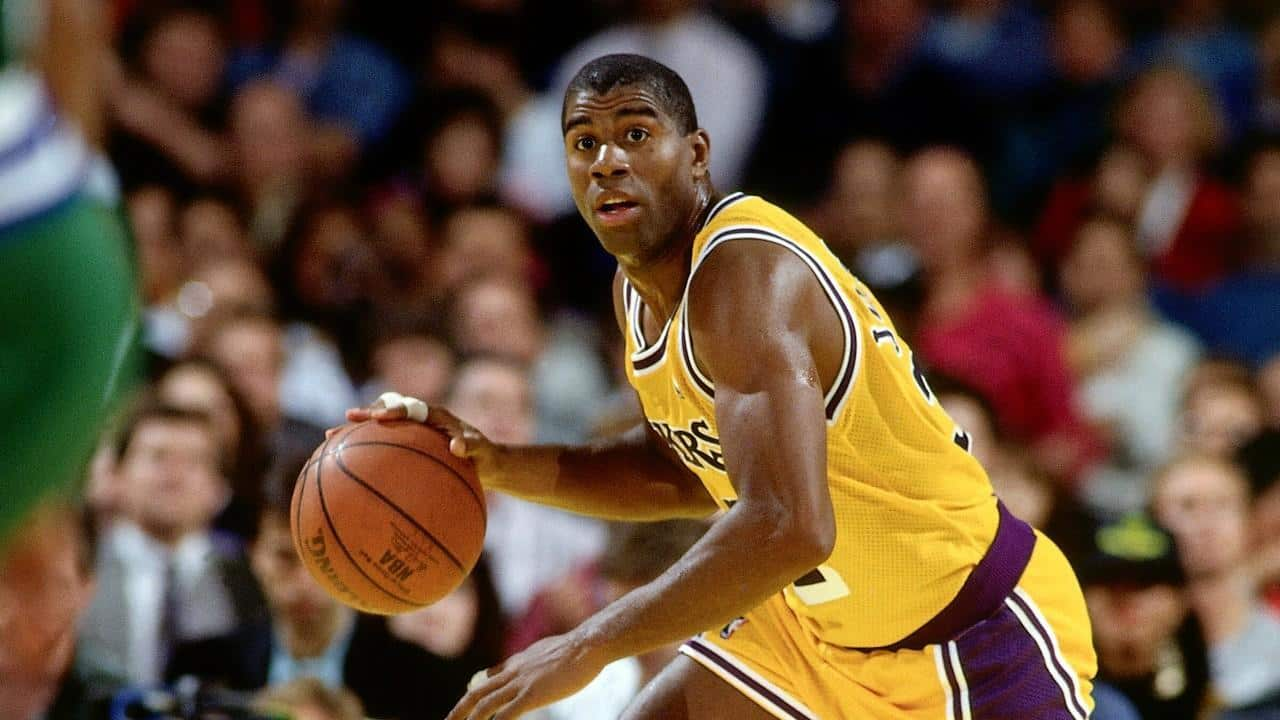In front of a packed room of journalists, Magic Johnson made that would forever change the public perception of HIV.
“Because of the HIV virus that I have attained, I will have to retire from the Lakers. Today.”
Throughout the ‘80s and leading into the ‘90s, HIV was a condition mostly seen as something that afflicted gay white men from cities or poor drug addicts who shared needles with abandon. Most people weren’t aware how the virus was transmitted and the level of miseducation surrounding HIV led to the tragic stigmatising of those suffering from it.
But in one moment, Magic turned HIV into a virus that didn’t discriminate: here was a heterosexual, six-foot-nine-inch athlete in the physical prime of his life. A charismatic, popular figure who had spent the previous decade as one of the most famous men in Hollywood, Magic and the Los Angeles Lakers had single-handedly brought an unprecedented level of glamour to the National Basketball Association.
And now Johnson was announcing that he had contracted HIV, seen then as a quick, painful death sentence.

Despite the bombshell he’d just dropped, Johnson seemed calm, strong and filled with life – he spoke of "life" and "living" six separate times during his announcement.
“I plan on going on, living for a long time, bugging you guys, like I always have. So, you’ll see me around," he said.
Despite his affirmations, the truth was, at that time, Johnson was expecting his life to be drastically cut short. Doctors had given him a window of three years, which was seen as an optimistic outlook based on his supreme physical condition at the time.
NBA Commissioner David Stern was supportive, quickly educating himself about the realities of Magic’s diagnosis. He appointed doctors to visit each team to dispel any myths surrounding the disease, and assured players they were safe if they exercised caution. The main concern was transmission through sweat, which shows the level of misinformation surrounding the virus in 1991.
Stern’s quick actions were to be tested just three months after Magic’s announcement when Johnson stepped out of retirement to play in the 1992 NBA All-Star Game.

Many expected a frail shadow of his former self, but Magic shocked crowds by playing one of his finest matches in years, scoring a game-high 25 points and winning the MVP award. “It was supposed to be a swan song,” wrote the Boston Globe. Expectations of the game being “the farewell of Magic Johnson from the NBA and perhaps mainstream society” proved decidedly unfounded.
The healthy attitude in the NBA, fuelled by Commissioner Stern’s prompt and frank education on the subject was priceless. As high-profile players rallied behind Johnson, and his physicality appeared to be at its peak, the perception of HIV irrevocably shifted.
Dennis Rodman made a statement of support during the All-Star Game by guarding Johnson in a physically aggressive way, his tacit message to the world that HIV was not something that could be easily transmitted.
“I think it was the night before, I was tossing and turning, and I was praying and hoping that they would accept me, that they would want to play against me,” Magic told ESPN years later. “[Rodman’s actions said] ‘OK, I am going to show everybody it’s OK to play against Magic and nothing will happen to you’.”

As Johnson threw himself into becoming the public face of HIV, starting a foundation and speaking openly about safe sex, he continued to reshape the many inaccuracies surrounding the virus.
His business deals remained intact, furthering the cause. While it may seem trivial or obvious in 2018, back in 1991, at the height of public fear, the fact that Pepsi, Nestle, KFC, Converse, Nintendo and Spalding all stood by Johnson and continued to have him endorse their products spoke volumes.
In a searingly honest Sports Illustrated feature titled ‘I’ll Deal With It’, published only 11 days after his announcement, Johnson admits he – like most of the world – was uneducated about the facts. “I didn’t know the difference between the virus and the disease. While my ears heard HIV-positive, my mind heard AIDS,” he wrote. “To me, AIDS was someone else’s disease. It was a disease for gays and drug users. Not for someone like me.”
He spoke about how he was certain that he “was infected by having unprotected sex with a woman who has the virus,” explaining that “before I was married, I truly lived the bachelor’s life” admitting, “I did my best to accommodate as many women as I could – most of them through unprotected sex.”
Magic’s announcement came 10 years after The New York Times on a “rare cancer seen in 41 homosexuals”, carrying the story on page 20.
By May 1983, HIV had made the front page of the Times, although the messaging was such that reports that HIV could be sexually transmitted from men to women were called a mere “suggestion”, while the Assistant Secretary of Health and Human Services said: “We have seen no evidence that it is breaking out from the originally defined high-risk groups. I personally do not think there is any reason for panic among the general population.”

In 1984, the president of American Airlines quipped at the Republican National Convention that "gay" was an acronym for Got AIDS Yet? US President Ronald Reagan wouldn’t publicly acknowledge the existence of the disease until 1985, with his first public address on the epidemic not being until May 1987 after over 25,000 Americans had already died from AIDS.
By the end of 1991, when Magic Johnson was announcing his HIV status, the World Health Organisation announced that 10 million people worldwide were currently infected with the virus.
Magic Johnson turned 59 this year, and looks fantastic for his age.
He has lived with HIV for 27 years. He is President of the LA Lakers and heads up Magic Johnson Enterprises, which is worth north of one billion US dollars. Johnson still plays basketball every day.
Magic Johnson: The Announcement airs on Sunday 2 December at 10:45pm on SBS.
